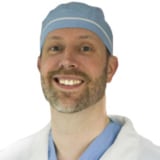
The date had been marked for several months on my calendar: February 17th, the beginning of my first vacation week since the summer. As a family we had gone back and forth deciding what to do, but ultimately had decided to forgo our usual local New England cold weather trip in favor of a warmer destination. We settled on a cruise through the Western Caribbean as a way to relax and give our young daughters their first taste of non-domestic travel and different cultures. The trip was booked and, as the day approached, excitement began to build among all of us. As the calendar reached the end of January, news of a new viral outbreak in China had just begun to trickle in to our news cycle. On February 4th, a cruise ship (the Diamond Princess) was quarantined off of Japan. Despite the implicit objections of our extended families, we opted to go forward with our own cruise (at the time there were no concerns about spread outside of eastern Asia). We had a great time and made it back home safely. Three weeks later, I would be cancelling my elective surgeries for the foreseeable future, holding my first ever telehealth visits, practicing physical distancing, and wondering what the financial impact of the COVID-19 pandemic would have on my medical practice.
As I write this, several weeks have passed under what has become the “new normal” for me and many physicians who aren’t directly on the front-lines delivering care (at least, not yet). Working from home is not something many of us ever anticipated doing. The U.S. has yet to enter what is anticipated to be our spike in cases, but there remains no real guess as to when elective surgeries will resume, when we will re-open our doors to non-urgent orthopedic issues, and when there will be some return to normalcy. Difficult decisions about the business of our private practice, changes to our practice model, and trickle down effects to our staff still loom.
Given the unprecedented nature of the current crisis, the rules are being written and re-written on a daily basis. Difficult questions are asked and lack certain answers. What exactly is an “elective” surgery? Which patients should be seen in person and which can be properly evaluated via telehealth? How do we maintain morale and reassure our patients and employees in a time of so much uncertainty? What will our practice look like when we emerge on the other side? What lessons, if any, can be gleaned from this journey through uncharted waters? Can we grow, evolve, and emerge stronger?
As a private practice orthopedic surgeon, I continue to adapt to the new schedule. My practice consists of almost exclusively of hip and knee replacement surgeries. Though many of my patients suffering from debilitating arthritis pain do not consider joint replacement surgery “elective,” these procedures are not deemed “time-sensitive” — meaning that they have been delayed to preserve PPE, hospital space, and resources and to reduce unnecessary exposures. Recommendations to engage in physical distancing and orders to shelter-in-place have typically exempted those seeking medical care. We have continued to see urgent and emergent patients in the office but have remained vigilant to keep those with symptoms away in an effort to protect ourselves, our staff, and our patients. The COVID-19 outbreak has thrust telehealth — before now relegated to the fringes of health care — into the spotlight as practices attempt to safely continue to treat patients and generate revenue to keep the doors open. It remains to be seen whether or not this is the moment of reckoning for telehealth in the future of medical care.
At the time of this writing, there is still much uncertain about the duration of this outbreak and the short and long term effects it will have on our practice as a business. Reports of layoffs, furloughs, reduced or eliminated salaries and other austerity measures aimed at keeping private practices afloat have increased. Difficult decisions still loom for our practice and others. The CARES Act created financial resources for small businesses which will help some practices but may not be enough to save them all. Employed physicians also face an uncertain future as their health systems and hospitals struggle with reductions in revenue due to lack of elective procedures. Looking toward the future, a return to normalcy may take months and the long-term impact of this episode on the way we practice has yet to be determined. And we still don’t know when the pandemic will be over.
I wonder what a post-COVID-19 world will look like for physicians. Prior to the outbreak, there was growing negative sentiment towards doctors. As a profession, medicine was once viewed as noble, and those who practiced it were valued pillars of the community. But as frustration toward the American health care system has grown, physicians have increasingly been viewed as a part of the problem with a Nobel prize winning economist recently labelling physicians as "rent-seekers." The pandemic has perhaps reversed this trend as doctors have been thrust to the front-lines (along with nurses, technicians, assistants, aids, and other health care workers), literally putting their lives on the line to deliver care. Will this pandemic usher in a renewed respect for doctoring or, as memory of coronavirus fades, will physicians once again bear the angst of a struggling system?
For now, I have not yet been called to the front lines although some of my orthopedic colleagues have. The possibility remains. In the meantime, my job is to maintain social distancing, use telehealth to service existing patients, and try to keep patients with musculoskeletal problems out of the overtaxed ERs. My thoughts and appreciation go to those exposing themselves on a daily basis to take care of these patients and fight the increasingly difficult battle with fewer resources than they need. As we applaud their efforts in crisis, so should we applaud their efforts when normalcy has returned and, along with it, the challenges they have faced before coronavirus and those they will face long after the pandemic is over. Yes, they are heroes now, but then again, they always have been.
Dr. Benjamin Schwartz is a fellowship-trained joint replacement surgeon practicing on the North Shore of Massachusetts. He enjoys working out, taking road trips with his family, and cooking. He serves on the Editorial Board of the Journal of Arthroplasty and is a member of the AAHKS Practice Management Committee. Dr. Schwartz is a 2019-2020 Doximity Fellow.
Click here to see more perspectives on COVID-19 from the Doximity network.
Click here for up-to-date news about COVID-19 on Doximity.







